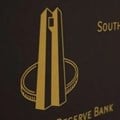The 1990 Banks Act stipulates how registered banks must conduct their business of taking deposits from the public. The Banks Act also prohibits the conducting of banking business by anyone who is not registered as a bank.

Source: Gary Moore, senior consultant at the Free Market Foundation.
The Act declares that contraventions of and failures to comply with any of its manifold requirements are criminal offences. The Banks Act creates over 150 criminal offences.
No doubt most of the statutory offences created by the Banks Act can be justified in the interests of guarding against misappropriation or loss of moneys entrusted by customers to banks. (While that may be so, the common-law crimes of fraud and theft could arguably address many of the infringements addressed in the Act.)
The Constitution declares that the Republic is founded on the Rule of Law.
The Rule of Law requires laws to be clear and predictable. Questions of legal liability should be resolved by application of the law and not the exercise of discretion. Laws should apply equally to all, except to the extent that objective differences justify differentiation. Laws should adequately protect fundamental rights.
The Constitution states that juristic persons (such as banks) are entitled to the fundamental rights in the Bill of Rights when they are applicable to juristic persons.
However, some of the Banks Act’s provisions violate the Rule of Law and the fundamental rights in the Bill of Rights.
The Banks Act deems a dozen or so practices as undesirable and prohibits banks from employing them. The Act states that a bank that employs any of these undesirable practices commits an offence punishable by a fine of up to R200,000 (currently) or imprisonment for up to five years or both; those provisions of the Banks Act are legitimate.
But the Banks Act goes further and authorises the Reserve Bank’s Prudential Authority to notify a bank that any other practice employed by that bank constitutes an undesirable practice for that bank. If the bank continues to employ that practice, it will commit an offence punishable by the same penalties.
The Act contains no criteria to circumscribe this power of the Prudential Authority to determine that a particular bank can no longer employ a specified banking practice. A decision to stop a bank from employing a specific banking practice is left to the subjective discretion of the Authority to decide as it deems fit. This is rule by discretion, not rule by law.
As a senior British judge observed, the broader that an official discretion is, the greater is the scope for subjectivity and hence for arbitrariness; this is the antithesis of the rule of law.
The Banks Act also states that if, “in the opinion” of the Authority, the issue or publication by any bank of a specific prospectus, brochure or advertisement is “not in the public interest”, the Authority can “request” that bank to discontinue issuing or publishing it. If the bank fails to comply with that “request”, it will commit an offence, punishable by the same penalties of a fine of up to R200,000 or up to five years’ imprisonment or both.
A decision by the Authority to exercise its power to prevent a bank from issuing or publishing a specific prospectus, brochure or advertisement is in the unfettered subjective discretion of the Authority.
The Act leaves it entirely to the Authority to determine that “in the opinion” of the Authority the issuing or publishing of a particular prospectus, brochure or advertisement is “not in the public interest”.
The “public interest” is itself a malleable concept which allows for an unconstrained application of political and social considerations that are not directly related to the business of banking.
This power in the Banks Act of the Prudential Authority, to prohibit a bank from issuing or publishing any prospectus, brochure or advertisement that in the Authority’s opinion is not in the public interest, is an unreasonable and unjustifiable limitation of the fundamental right in the Bill of Rights to freedom of expression, which includes freedom to impart information or ideas, and is an unreasonable regulation of trade.
This power of the Authority, to prohibit a bank from issuing or publishing a prospectus, brochure or advertisement that in the Authority’s opinion is not in the public interest, violates the Rule of Law.
As mentioned, the Rule of Law requires laws to be predictable. Legal duties should be determined by law and not by discretion. Laws should apply equally to all, where no objective differences justify differentiation.


























































